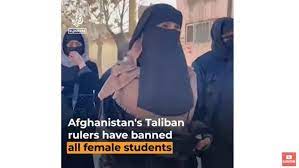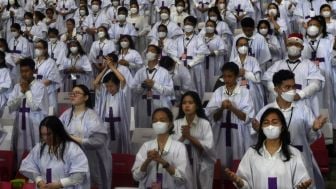
Foto Parpol yang akan diikut Pemilu 2024 ditambah Partai Ummat
STRATEGIC ASSESSMENT. The discourse on implementing a closed proportional system in the 2024 General Election surfaced after a number of parties submitted a judicial review of Law Number 7 of 2017 concerning Elections to the Constitutional Court (MK). If the Constitutional Court grants it, voters will only vote on the party logo in the ballot. Regarding the figure who serves as a member of the legislature, it is the party mechanism that determines.
Indonesia has implemented this system in the 1955, 1971, 1977, 1982, 1987, 1992, 1997, and 1999 elections.
However, if the Constitutional Court refuses, the implementation of the 2024 General Election applies an open proportional system like the previous four elections. Voters directly vote for legislative candidates (candidates) who will represent them in the DPR and DPRD.
The PDI-P, as the ruling party of parliament, currently strongly supports the discourse. The implementation of a closed proportional system in the 2024 election, according to PDI-P Secretary General Hasto Kristiyanto on January 8, can reduce political costs and minimize the tendency to dominate entrepreneurs in the legislative member structure.
In line with the PDI-P’s wishes, which are ready to open up opportunities for academics to become legislative candidates in the 2024 election. According to Hasto, we need defense experts, diplomatic experts who fight for Indonesia’s national interests in Commission I of the DPR RI, as well as agricultural experts in commission IV.
Meanwhile, 8 other parliamentary political parties (political parties) such as Golkar, Gerindra, NasDem, PKB, Democrats, PKS, PAN, and PPP expressed their refusal. They consider a closed proportional system to be a setback for democracy in Indonesia.
The right choice to continue to implement an open proportional electoral system in the 2024 General Election. This is a manifestation of democracy based on people’s sovereignty. In accordance with the decision of the Constitutional Court Number 22-24/PUU-VI/2008
“The lawsuit against jurisprudence will set a bad precedent for our law and is not in line with the principle of bis in idem,” said Chairman of the Golkar Party, Airlangga Hartarto, reading out a statement on the attitude of 8 political parties in Jakarta on January 8, 2023.
The implementation of an open proportional system does close opportunities for the party’s best cadres to participate in election competitions. In fact, it tends to lead to the practice of vote buying. Anyone who is popular, has a lot of money or has sponsorship, and has a personal closeness to the party leadership elite can become a legislative candidate without any competency standards.
In fact, according to Syamsuddin Haris in the book ‘Towards Political Party Reform’, to become a public official who obtains an electoral mandate, a person should have finished with himself. This means that the position as a member of the legislature and executive leaders in the regions is not a profession to earn a living and enrich themselves.
This position is for those who have an extraordinary commitment to building society and the environment in a sustainable manner, as well as creating justice, welfare, and collective benefit.
“The election candidates and the Pilkada Paslon should only be limited to those who really feel compelled to serve and donate their whole life for the common good,” wrote Syamsuddin.
However, that does not mean that a closed proportional system is also better. As long as political parties do not have integrity standards for politicians and their cadres, do not expect the electoral system to be effective.
It is difficult to find figures who have a vision to protect the entire Indonesian nation and all of Indonesia’s bloodshed, advance public welfare, educate the nation’s life, and participate in implementing world order based on independence, eternal peace and social justice.
Syamsuddin provides a record of the current problems experienced by the Political Party:
“In addition to institutional political party problems, Indonesian democracy is currently also being imprisoned in party system problems that are not compatible with the presidential system,” he said.
So, it is not enough to fix the electoral system. According to Syamsuddin, “Without the reform of political parties and the party system, our democracy is nothing more than an electoral democracy that is merely procedural.”








